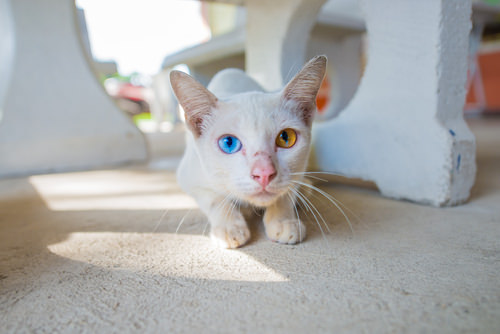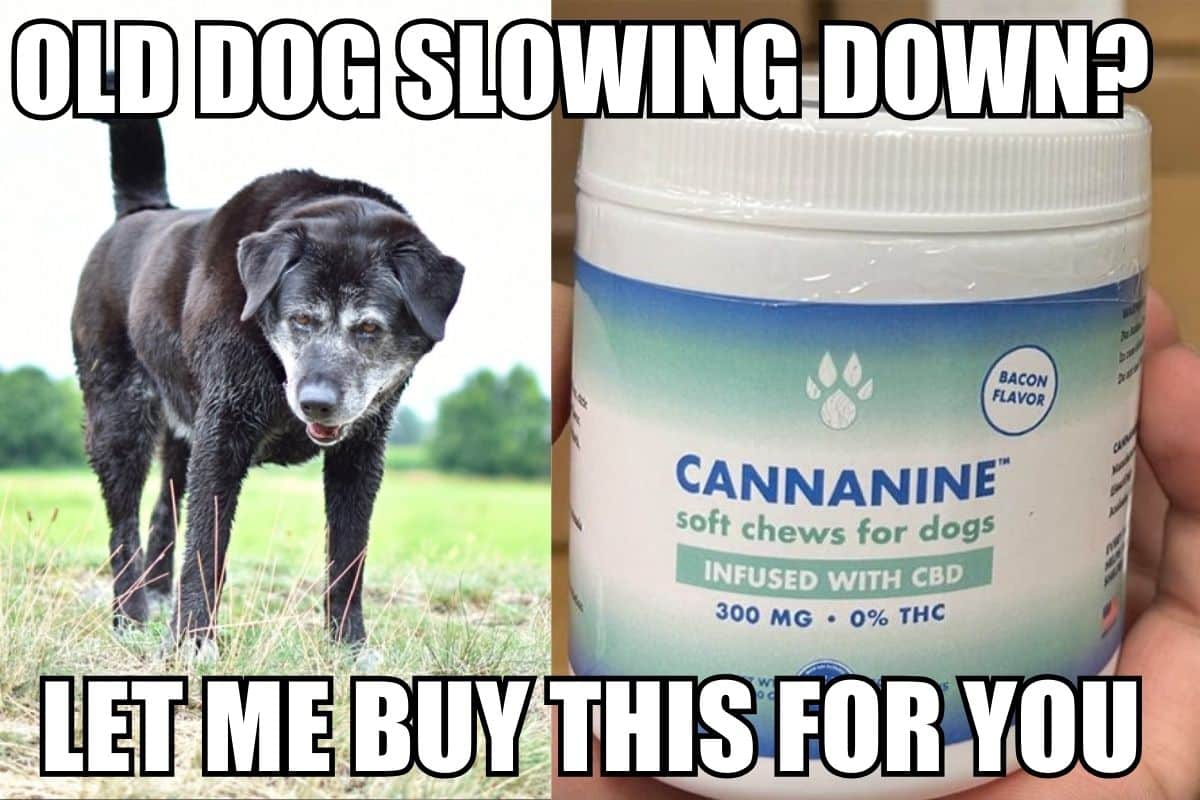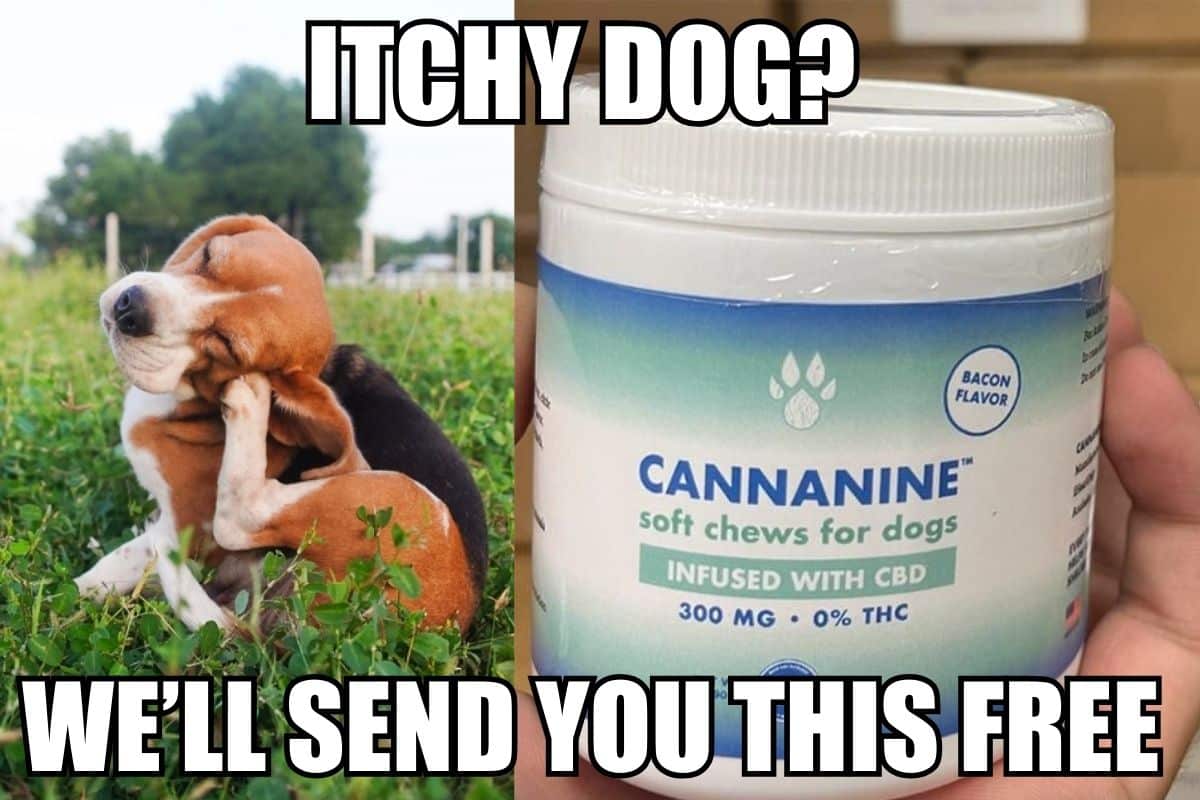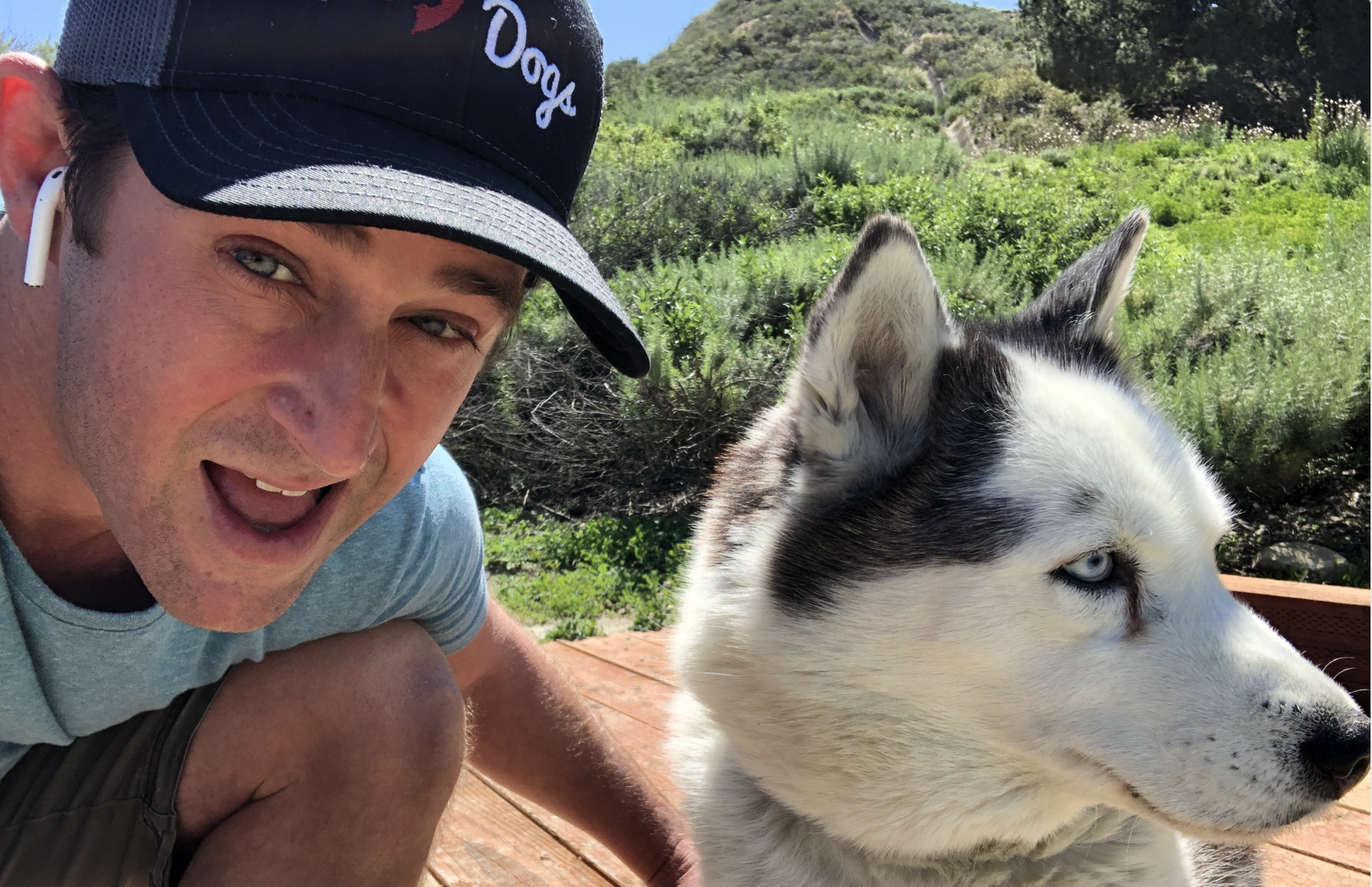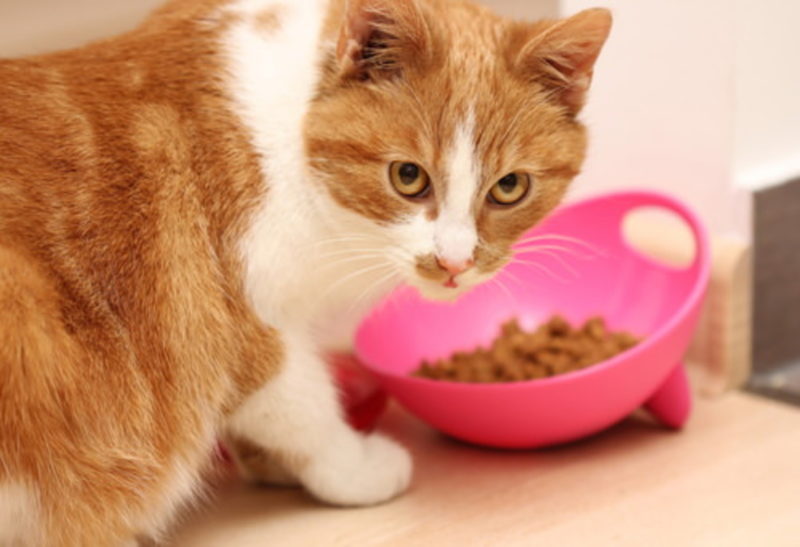
Cat Won’t Eat? 8 Possible Reasons & How To Resolve Them
Felines are known for their finicky habits, but when a cat won’t eat, it is no laughing matter. Unlike their canine cousins, cats are prone to a life-threatening condition known as hepatic lipidosis that can develop within days when they stop eating.
In order to improve your cat’s poor appetite, you must first pinpoint why he or she is not eating. From there, you can determine whether to seek veterinary attention or simply work on healthy lifestyle changes.
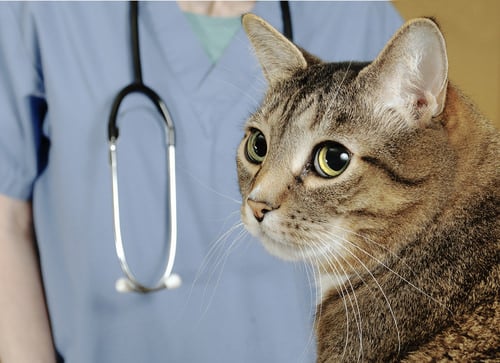
Normal Feline Eating Habits
Many common feline diseases can be traced back to poor diet. Understanding how their feral cousins eat in the wild may shed light on why a domestic cat won’t eat in a home setting.
As true carnivores, cats get the majority of their calories from protein and fat. In fact, a feral cat’s diet typically consists of only 2% carbohydrates. While house cats have the same nutritional needs, most commercial feline diets are much higher in carbs, and may also include unnecessary fillers, dyes and additives.
It is also worth mentioning that feral cats hunt off and on all day, typically eating several small meals of rodents, birds, lizards, and insects. House cats also “graze” throughout the day, but they take in more calories and get far less exercise.
In this post, we will explore the most common reasons cats stop eating, and how you can help them regain their appetites.
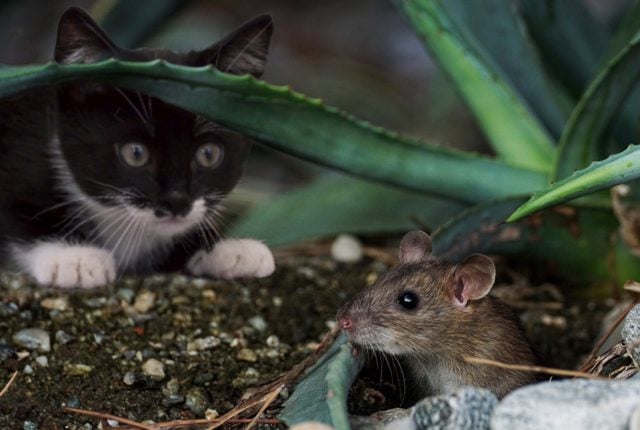
Why Is Your Cat Not Eating?
1. Overfeeding
If you free-feed your cat, he or she may be eating more than you think. Many cat parents choose to keep their food dish full and available all day long so their pet can eat whenever it wants.
Like feral felines that eat multiple small meals a day, domestic cats often visit the bowl repeatedly. If you are busy or not at home, you may simply overlook how many little snacks your kitty is enjoying throughout the day.
You may also inadvertently overfeed your cat by following the guidelines on the food bag or can. Since the primary goal of pet food companies is to sell lots of food, they often over-estimate the amount your pet should be eating.
For an accurate estimate of how much your cat should eat, ask your veterinarian. He or she will take into account your kitty’s age, size, activity level, and ideal weight to provide you with accurate feeding guidelines.
2. Too Many Treats
You know how snacking can ruin your dinner? The same is true for your cat! A few treats throughout the day may not seem like much, but those calories add up, especially when your kitty only weighs about 10 pounds!
Your cat may feel full due to all the extra snacks, or may simply be holding out for tasty treats rather than boring kibble.
According to veterinarian Dr. Robin Downing, treats should never provide more than 5 – 10% of a cat’s calorie intake. Cat treats are usually not nutritionally balanced, and like cheaper cat foods, often contain sugars, dyes, and unhealthy additives.
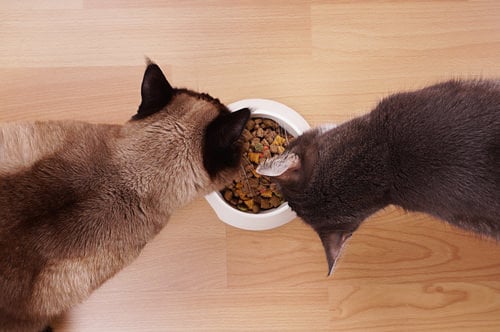
3. “Picky” Behavior
Some cats truly are picky eaters, especially if they receive lots of treats and extras from the table. Rather than indulging your cat’s stubborn behavior, choose a balanced, high-quality diet and stick to it.
However, if the pickiness is new, it could mean your cat is sick or under stress. Are there any additional symptoms accompanying the lack of appetite such as vomiting, diarrhea, or constipation? If so, head to the vet for a checkup.
If your cat won’t eat, but seems fine otherwise, the problem could be stress-related.
4. Stress
Cats are very susceptible to stress and anxiety. In the wild, they are both predator and prey so they must always remain alert and be ready to fight or flee at a moment’s notice. In a domestic setting, even the smallest changes to their routine can cause stress and lead them to stop eating.
Common causes of stress in domestic cats:
- Boredom
- Territorial anxiety
- Conflicts with other animals in the home
- Loud noises such as thunderstorms, fireworks, or music
- Loss of a human or animal in the family
- Changes in routine or schedule
- Adding a new person or pet to the family
- Medical conditions
- Moving or traveling
- Car rides
- Changes around the house such as remodeling
- Visits to the vet, boarding kennel, or groomer
5. Dental Pain
No one wants to eat when their teeth or gums are sore. Dental disease often develops with age, but even very young cats can suffer dental pain. If you notice your kitty chewing on only one side of the mouth or swallowing food whole, schedule an appointment with your vet.
6. Recent Vaccination or Medication
Side effects like soreness, lethargy, poor appetite, and even nausea are normal up to 48 hours after your cat receives a vaccination. As long as your kitty recovers within a day or two, and does not suffer from serious side effects like convulsions, facial swelling, or difficulty breathing, there is no need to return to the vet.
Certain medications may also make your cat feel under the weather. Some cause nausea or upset stomach while others may make them excessively sleepy. If your cat won’t eat after starting a new medication, discontinue the drug and contact your vet.
7. Normal Aging Changes
As cats age, they tend to become less active. Less running, jumping, and playing means they require less calories. If your cat is heading into his or her senior years, a decrease in appetite may just be a normal aging change.
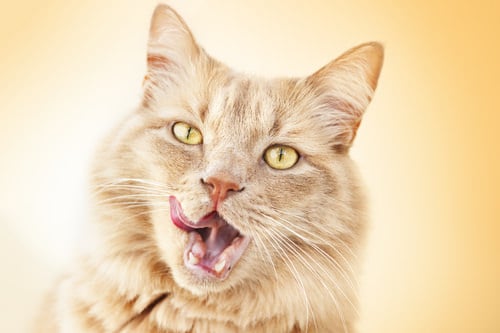
8. Illness
Last, but certainly not least, appetite changes could mean there is something wrong within your cat’s body. Watch for additional symptoms such as vomiting, diarrhea, lethargy, etc., and when in doubt, seek veterinary care.
Illnesses that may cause a cat to stop eating include:
- Pancreatitis
- Gastritis
- Dietary Indiscretion (eating something toxic, non-food, or rotten)
- Poisoning
- Various Systemic Infections
- Pain
- Inflammatory Conditions
- Kidney Disease
- Diabetes
How Long Can A Cat Go Without Eating?
While dogs can go up to five days without food, cats are not so lucky. When a cat won’t eat for a few days, or eats very little for a few weeks, they are at risk for a serious illness called hepatic lipidosis, also known as fatty liver.
A sudden drop in weight, especially in an obese cat, causes the body to turn to its fat stores for energy. The fat infiltrates the liver which leads to acute liver failure if the organ is unable to remove the excess fat deposits.
If your cat appears to have lost weight, is vomiting, having diarrhea, or has a yellowish tinge to the eyes or skin, seek immediate veterinary care!
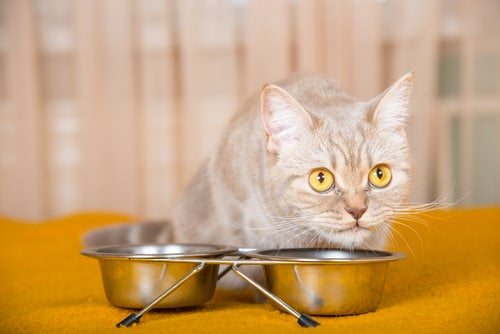
What To Do If Your Cat Won’t Eat
**If at any time you feel your cat is not eating because of a medical condition, you should see your vet promptly.
In addition to cutting back on treats and providing fresh, healthy food, the following tips may help get your cat’s appetite back on track.
Try Minor Diet Changes
Cats are very particular about the size, shape, texture, and consistency of their food. If your kitty eats dry food, try a kibble in a different shape. For those that eat canned food, try chunks in gravy instead of minced, or vice versa.
If your cat is suffering from upper respiratory problems, he or she may have trouble smelling their food. Try warming it slightly to bring out the aroma.
Reduce Stress
Is your cat’s food dish in a high-traffic area of the home? Maybe it sits next to the noisy dishwasher? Consider your kitty’s skittish nature and place the food and water bowls in a calm, quiet area of the home.
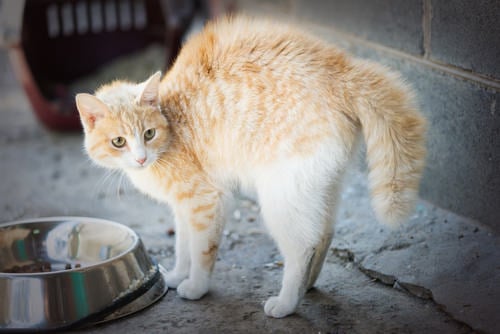
Stimulate Appetite With CBD
Appetite stimulation and nausea relief are among the lesser-known benefits of CBD oil for cats. Here’s how it works:
CBD Alleviates Anxiety
CBD increases the availability of serotonin – the “feel-good” chemical – to the brain. It works in much the same way as anti-anxiety drugs like Prozac and Zoloft, without the dangerous side effects.
CBD Reduces Inflammation
If your cat won’t eat due to an inflammatory condition like urinary tract disease, certain respiratory conditions, or inflammatory bowel disease, CBD can help reduce inflammation and alleviate the painful symptoms.
CBD Relieves Nausea
Studies show that CBD can help reduce vomiting and nausea by indirectly activating a neurotransmitter in the body.
CBD Helps Produce Appetite-Stimulating Hormones
There are two main hormones that control appetite – ghrelin and leptin. Ghrelin lets cats know when it it time to eat by stimulating the appetite, and leptin tells them when they are full.
CBD interacts with receptors in the hypothalamus to regulate the production of these hormones, helping to normalize your cat’s feelings of hunger and satiety.
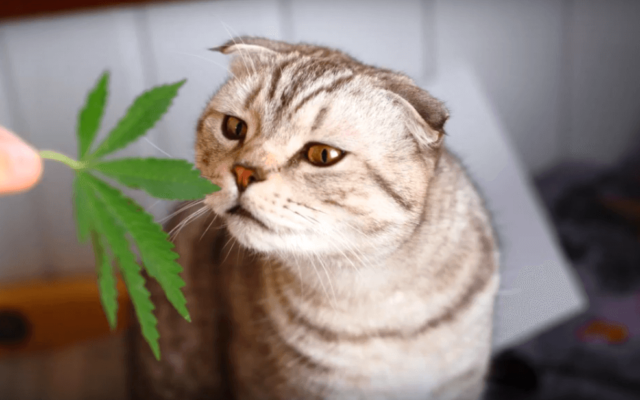
Which CBD Oil Should You Choose If Your Cat Won’t Eat?
When choosing CBD for your pet, you want an oil created with the unique needs of cats in mind.
While most CBD oils contain trace amounts of THC, the chemical responsible for marijuana’s “high,” Cananine™ Organic Full Spectrum CBD Oil from Hemp is completely THC-free. This is essential for protecting your cat from THC toxicity. We even have each batch laboratory tested to ensure purity and safety.
In addition, Cannanine is made with 100% organic Colorado hemp. Our oil contains human-grade ingredients and is free from GMOs and impurities such as heavy metals, bacteria, and mold.
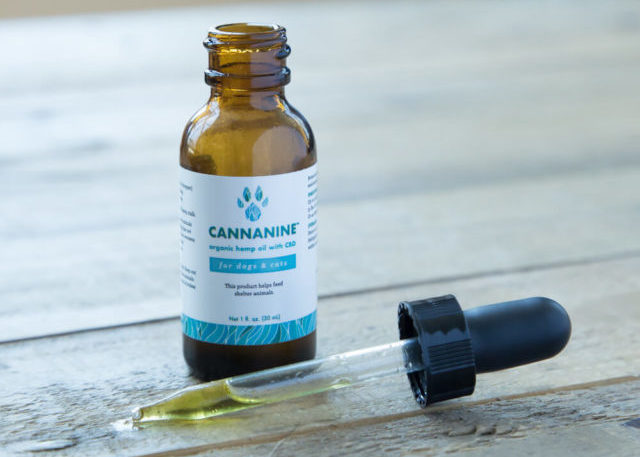
These statements have not been evaluated by the Food and Drug Administration. This product is not intended to diagnose, treat, cure, or prevent any disease. The information on this website is not intended to replace a one-on-one relationship with a qualified healthcare professional.
Additional Resources on CBD Oil for Cats
What Are The Benefits Of CBD Oil For Cats?
5 Ways You Didn’t Know CBD Oil Could Benefit Your Cat
Are There Any Side Effects of CBD Oil For Cats?
How Much CBD Oil Should I Give My Cat?
The Difference Between Hemp And Marijuana And Why Hemp For Cats Is Beneficial
How Senior Cats Can Benefit From CBD Oil
3 Reasons Senior Cat Owners Are Flocking to CBD Oil
Why Your Veterinarian Might Not Want to Talk About CBD Oil
CBD For Your Cat’s Joint Pain: How This Hemp Based Supplement Can Help

